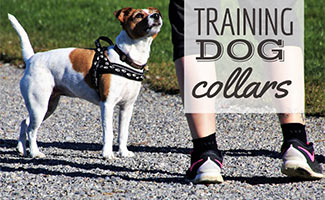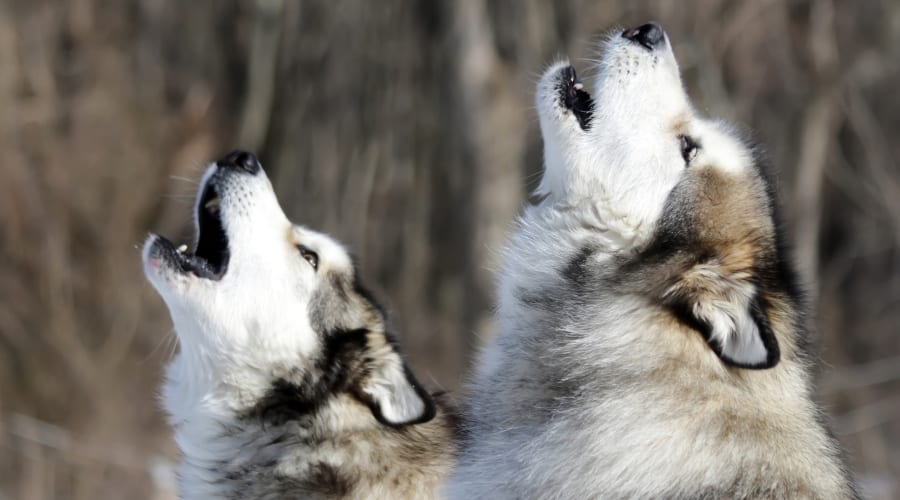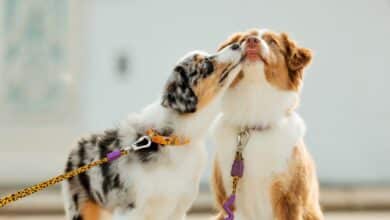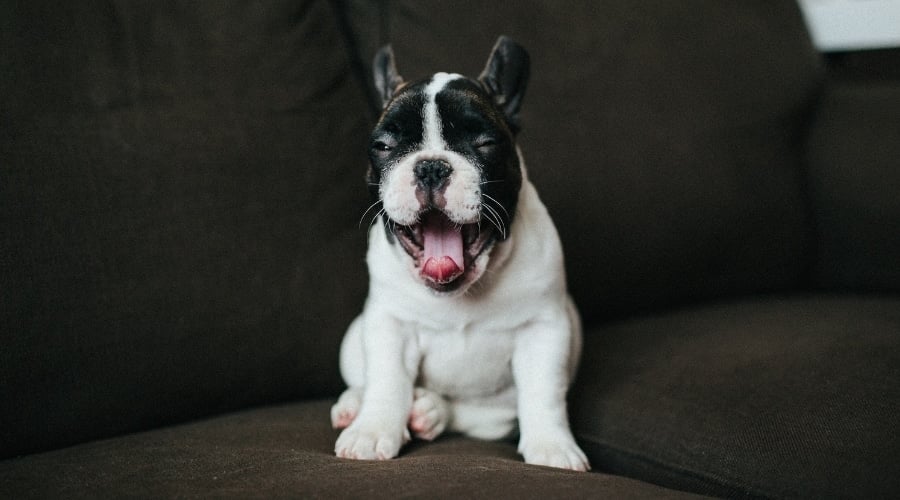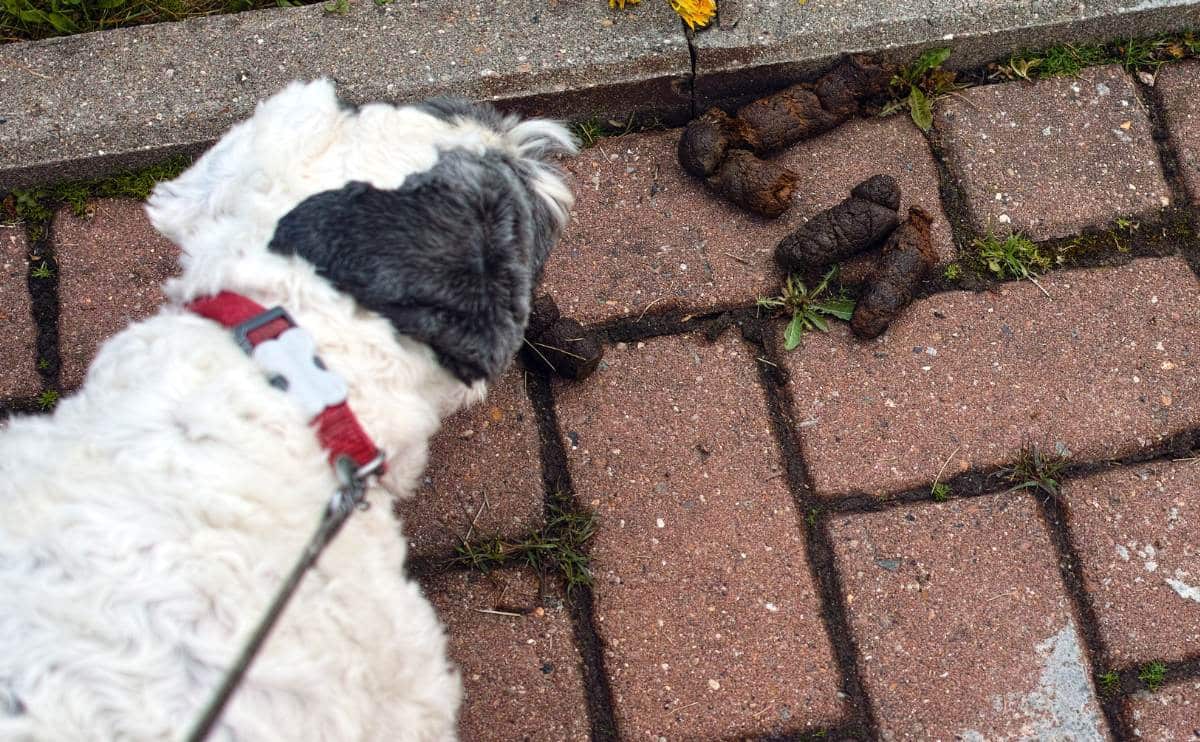How To Stop A Dog From Biting & Training A Puppy Not To Bite
When you purchase through links on our site, we may earn a commission. Here’s how it works.
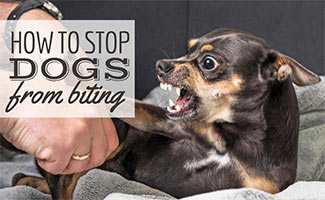
Are your dog’s nipping or biting behaviors becoming a concern for you? Dog biting can be a serious problem that you need to address as early as possible. We’ll help you know how to start training your pup and when it’s time to seek professional help.
Table of Contents
Dog nipping and biting is a common concern for many pup parents. Any dog of any age, breed, or personality is capable of biting, especially if they feel threatened. In many cases, you can tackle the training on your own to stop your puppy or dog from biting. See our tips and review the resources you may need if you require extra help.
How To Train A Puppy Not To Bite

Puppies are natural nibblers. Nibbling helps them with the discomfort of the teething process. And puppies and dogs often use their mouths to handle objects rather than their paws. Puppy nibbling, often called “play biting,” can be annoying and painful for owners. And if you don’t nip biting in the bud early on, it can become a serious problem down the road.
So how do you stop a puppy from biting? Training a puppy not to bite can be easier than you might think. Also, see the video below for some tips on how to stop play biting.
Teach Bite Inhibition
Puppies need to be taught not to bite down hard when playing. They naturally do this with each other in a litter by yelping when a sibling goes overboard with a bite. You can mimic this warning signal when you’re playing with your puppy by making a yelping sound or saying, “Ow!” If your puppy stops biting, reward him with praise and even a treat.
End The Game
Simply giving a warning signal doesn’t work for all puppies. Fortunately, there are a few other bite inhibition methods you can try. When playing, if your puppy bites too hard, teach him that it’s game over. You can do this by stopping play immediately and slowly withdrawing your hand. Some trainers also recommend turning your back to your puppy. This shows that there’s no reward of continued play if he bites.
Give Your Puppy An Alternative To Chew
Keep a puppy chew toy on hand when you’re interacting with your puppy. If he starts nibbling or biting you, then substitute the chew toy for your hand. This helps teach your puppy what is and isn’t appropriate to chew and gnaw on. If he continues to bite you, then it’s game over.
When It’s Time For Time-Out
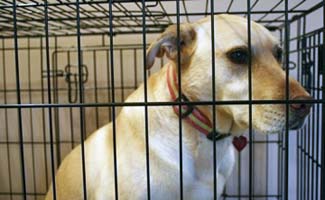
If you’ve tried the methods above and your puppy continues to bite you and be overly excited, then you can put him in his crate until he calms down. With this method, it’s important not to make his crate seem like a place for punishment. So remain calm and positive when crating your dog.
Be Patient And Positive
Remember that it takes a while to train a puppy, so be patient as you work on these methods. It’s also crucial for you to use positive reinforcement with your pup. Never yell at him or spank him. This can cause even more aggressive behavior in dogs.
Socialization
Socializing your puppy is always an excellent way to help reinforce many types of behavior training. Calmly interacting with different types of people creates a more confident pup down the road. You may also want to consider enrolling him in a puppy class for the opportunity to socialize with other dogs.
Why Do Dogs Bite?

Adult dogs can bite for different reasons compared to puppy play biting (although some adult dogs might nip and bite during play, especially if they weren’t appropriately trained as puppies). It’s essential to understand factors that may provoke biting and aggressive behavior in dogs.
Here are some of the most common reasons dogs bite.
- Defending themselves if they feel threatened or provoked
- Feeling scared or have been suddenly startled
- Protecting their territory or “property,” such as toys, food, puppies, or even their owner
- Injury or illness — they want to be left alone if not feeling well
- Running away from a dog may provoke biting
How To Get A Dog To Stop Biting
Depending on how your dog is biting, we recommend starting with the puppy training tips above. If these measures don’t work for your adult dog, then it’s time to consider professional help.
It is important for you to be a responsible dog owner and ensure your dog gets all the training he needs to prevent biting. You should seriously consider getting a training collar and either enrolling in an online training course or finding a dog trainer in your local area to help change this dangerous behavior.
How Do I Stop My Dog From Biting When Excited?
Some dogs get overly excited when they’re playing, which can lead to nipping and biting. Although dogs consider this part of the fun, it can be dangerous. It’s best to avoid such activities as playing tug-of-war with toys, wrestling, or other forms of play that encourage aggressive behavior. You know your dog best, so take note of and avoid activities that cause him to become overly excited and nip or bite.
Frequently Asked Questions
Owners have many questions about dog biting. Here are some of the most common questions we’ve seen.
Why Does My Dog Nibble Me?
Very gentle dog nibbling can be a sign of affection as well as a way to play. If your dog is calm and simply nibbling you softly, then it’s likely mouthing affection. However, if he’s nibbling you while playing, it’s a good idea not to indulge in this behavior because it could escalate the more excited he gets.
What If My Dog Bites Me?

Are you wondering what to do with a dog that bites his owner? If your adult dog bites you, then put him in his crate or a separate room until he has time to calm down. A dog bite can be alarming, so make sure you calm down as well before interacting with your pup again. And make sure you assess your wound, especially if the bite broke your skin. You may need first aid or to visit with a doctor.
Once everyone has calmed down, approach your dog calmly without being confrontational. Use caution if your furry friend appears anxious or frightened. If he seems calm and you don’t fear he’ll bite you again, then you can let him out of his crate or allow him to approach you. He may need some comfort and reassurance from you.
You’ll then need to try to figure out what may have caused your dog to bite you. This can help you determine if you need to get professional help to curb aggressive behavioral issues.
Biting you is one thing, but biting someone outside of your household presents much more complex scenarios that may involve a fine or legal settlement or could even lead to your dog’s forced euthanasia. It’s best to consider behavioral training now before the problem escalates to this terrifying situation.
What Do I Do If My Dog Bites Someone?
Even if your dog has never bitten anyone before, it’s essential to know what to do when your dog bites someone just in case it ever happens.
- Your first step is to confine your dog immediately.
- Make sure you offer to cover all of the person’s medical expenses and ask to drive them to the ER if the bite is severe.
- Once you’ve taken care of the bite victim, call your homeowner’s insurance company to see if you are protected in this sort of incident. If covered, they can support you if you get sued.
- Get a referral from your veterinarian for an animal behaviorist who works on dog aggression. It would also be wise to take the AKC Canine Good Citizen test — you may need to prove that your dog isn’t dangerous if the courts become involved.
- And if the police get involved and/or you’re being sued, make sure you have a lawyer to represent you.
How To Stop A Dog From Play Biting
While your puppy may be play biting, encouraging this behavior could lead to more severe incidents down the road. Take a look at this video for tips on how to curb biting before it starts.
Dog Bite Prevention
Dog biting is undoubtedly one of the most stressful concerns we have with our furry friends. According to dog bite statistics, it’s more prevalent than you might think — 1 out of every 73 people in the U.S. gets bitten by a dog every year.
We encourage you to use our training tips and resources to help prevent your dog from biting you or someone else. You may also want to consider using a muzzle in unavoidable situations where you fear your dog may bite. It would also be wise to talk to your homeowner’s insurance company to see if your policy covers dog liability. If not, you might want to apply for a stand-alone dog liability insurance policy to protect your wallet if your dog’s bad behaviors rear up.

